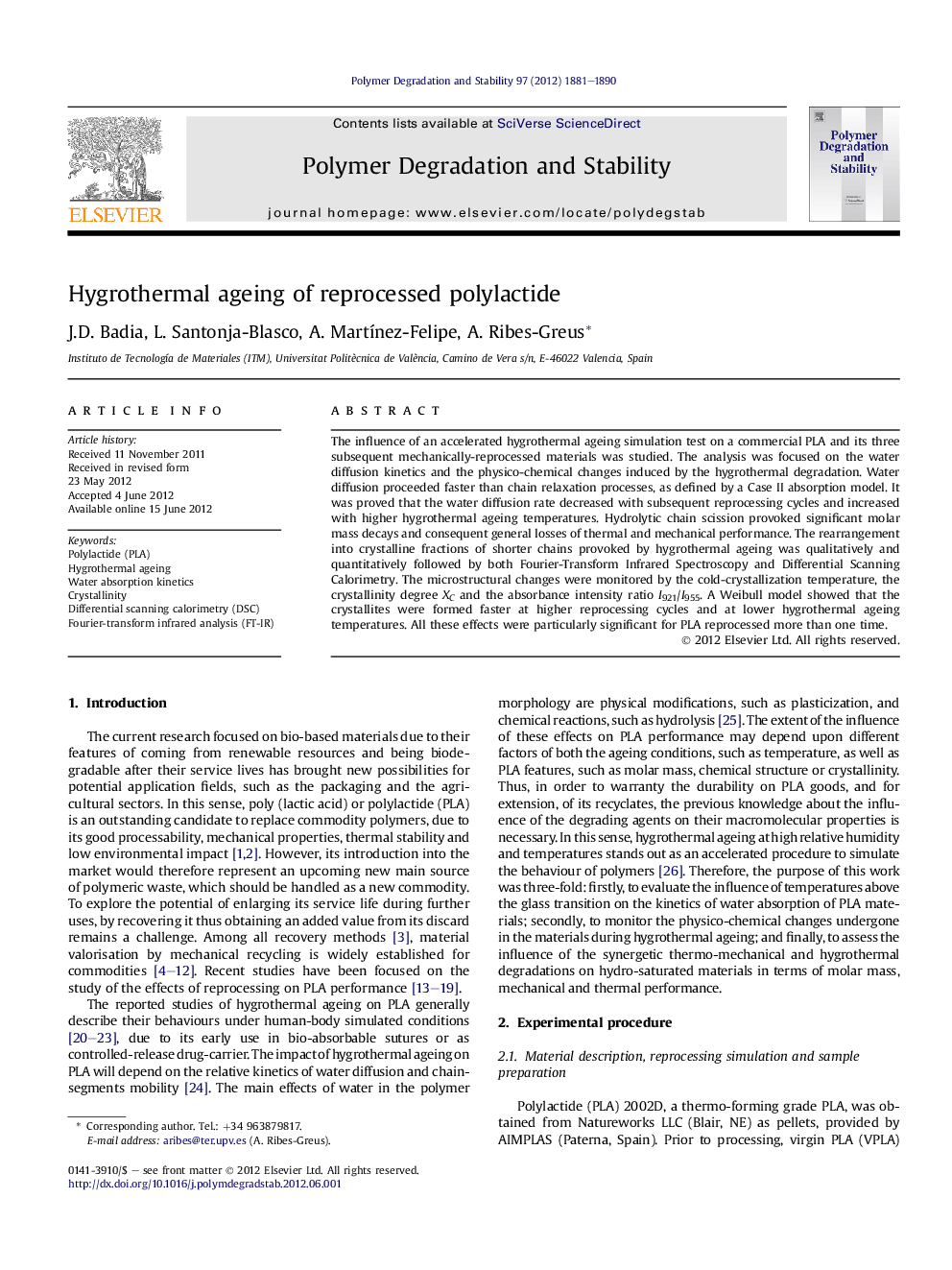| Article ID | Journal | Published Year | Pages | File Type |
|---|---|---|---|---|
| 5202308 | Polymer Degradation and Stability | 2012 | 10 Pages |
Abstract
The influence of an accelerated hygrothermal ageing simulation test on a commercial PLA and its three subsequent mechanically-reprocessed materials was studied. The analysis was focused on the water diffusion kinetics and the physico-chemical changes induced by the hygrothermal degradation. Water diffusion proceeded faster than chain relaxation processes, as defined by a Case II absorption model. It was proved that the water diffusion rate decreased with subsequent reprocessing cycles and increased with higher hygrothermal ageing temperatures. Hydrolytic chain scission provoked significant molar mass decays and consequent general losses of thermal and mechanical performance. The rearrangement into crystalline fractions of shorter chains provoked by hygrothermal ageing was qualitatively and quantitatively followed by both Fourier-Transform Infrared Spectroscopy and Differential Scanning Calorimetry. The microstructural changes were monitored by the cold-crystallization temperature, the crystallinity degree XC and the absorbance intensity ratio I921/I955. A Weibull model showed that the crystallites were formed faster at higher reprocessing cycles and at lower hygrothermal ageing temperatures. All these effects were particularly significant for PLA reprocessed more than one time.
Related Topics
Physical Sciences and Engineering
Chemistry
Organic Chemistry
Authors
J.D. Badia, L. Santonja-Blasco, A. MartÃnez-Felipe, A. Ribes-Greus,
